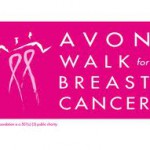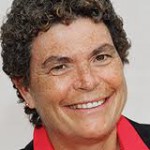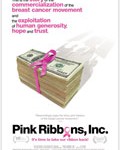If you like this blog, send to your friends. Let’s keep the conversation going.
There are many heroes and heroines in the world of breast cancer. You even know some of
their names. One of the best-known is Dr. Susan Love, author of Dr. Susan Love’s Breast Book, the excellent layperson’s guide to breast cancer issues. I have given that book to several people, and referred many others to it, as a clear and invaluable source of information for sorting out questions about breast cancer diagnoses and options for treatment.
Dr. Love stopped doing surgery some years ago, and now runs a foundation, called — you can guess it from the title of her book — The Susan Love Breast Cancer Foundation. Founded in 1995, its mission is “to eradicate breast cancer and improve the quality of women’s health through innovative research, education and advocacy.” (On the subject of the holy grail of “eradicating breast cancer,” see Breast Cancer Action’s Cancer Policy Perspective.) According to its last annual report, the Foundation has nearly $5 million in assets.
Eradicating breast cancer was not always the Foundation’s stated mission. In 2005, its stated mission was “to end breast cancer in 10 years.” I was then the E.D. at Breast Cancer Action, and had heard similar elusive promises from others many times. But I thought of Susan as more honest than most people in the field, so I was surprised. I emailed her to ask
from what year we should start counting the 10 years. She responded, “My board says when we raise all the money.” Oh yeah, the money thing. As 2015 approaches, the mission has changed. Either they didn’t raise all the money they needed or they saw that they couldn’t deliver. Surprise.
I have known Susan Love for a long time, and – despite her excellent book – disagreed with her about several things along the way. When we first “met” in 1994 at an on-line breast cancer forum, we disagreed about the value of breast self-exam. We still disagree about that. Susan says it sends women on a fearful “search and destroy” mission that doesn’t do any good. I say that discouraging women from knowing their own bodies is a dangerous thing, especially when about 1/3 of women with breast cancer find their own lumps.
But more recent events have intensified my disagreements with her. Here’s why:
Both Susan and I appear in the film that’s opening now across the country, Pink Ribbons,
Inc. In that film, Susan convincingly says we have to find the cause of breast cancer and stop it. In the film, she eloquently suggests that environmental research may be the key, and that people who want to support that kind of research should be sure that’s where their money is going. It’s clear to me that this call is for more funding for her foundation.
So far, so good, right? But Susan can’t really be that interested in environmental causes of breast cancer, because, if she were, she couldn’t accept some of the funding the Foundation has accepted or establish partnerships the Foundation has established.
I suspected as much when the Foundation announced to great fanfare its “Army of Women” approach to getting women involved in breast cancer studies. The Army was launched with the help of funding and publicity from the Avon Foundation.
(An aside: I was appalled at the name at the time — just what we need, another militaristic reference in the cancer world. See some discussion of this in a previous post.)
I was also pretty sure that the partnership was a direct result of the fact that Love was serving on the Avon Foundation’s Breast Cancer Scientific Advisory Board at the time. If  you don’t think this is how funding works, think again. Look at the list of who serves on a non-profit research funder’s advisory board, and see if you don’t find many of those names also on the list of the funder’s grantees.
you don’t think this is how funding works, think again. Look at the list of who serves on a non-profit research funder’s advisory board, and see if you don’t find many of those names also on the list of the funder’s grantees.
So, what’s the problem? Avon (the corporate parent of the Avon Foundation) refuses to sign on to the Campaign for Safe Cosmetics, and continues to use known or suspected carcinogens in some of their products. This corporate hypocrisy is also highlighted in Pink Ribbons, Inc.
My suspicions about Susan’s commitment to environmental health research were confirmed recently when Susan announced with great pride that her foundation has been
chosen to benefit from the Ford Motor Company’s “Ford Warriors in Pink Models of Courage” campaign. The Foundation will get the “net proceeds” (that means after costs are covered, so it could be little or nothing) of sales of things like Warriors in Pink: t-shirts, yoga pants, and sun hats, to name a few items. You can array yourself in much Ford Warrior in Pink apparel.
The Ford Motor Company is also featured in Pink Ribbons, Inc. Ford has a history of being the leading polluter in the automotive industry. And we know that some of things that are produced by internal combustion engine cars can increase the risk of many cancers, including breast cancer. Beyond that, the film includes a sequence that focuses on the elevated incidence of cancer in women who worked in automotive plastics factories, making parts for Ford. Ford’s purported concern about breast cancer is classic pinkwashing. And Susan Love is helping them do it. For shame.
Susan says in the film that she hates pink. But she partners with companies that are pinkwashers. Will the real Susan please stand up?
I invite you to join with me in calling on Susan Love to run her Foundation with the same  integrity she exhibited in Susan Love’s Breast Book. You can reach her at slove48@gmail.com.
integrity she exhibited in Susan Love’s Breast Book. You can reach her at slove48@gmail.com.
© Barbara A. Brenner 2012





Barbara,
Thanks for the analysis of the problems with Dr. Susan Love’s foundation and efforts.
We all need to let her know how we feel about her support of “pinkwashing”.
Too bad she hasn’t done more to find the real cause/s of breast cancer.
I did wonder about her from the way she presented in the film. She seemed a bit corporate. She seemed a bit narcissistic (all this Susan Love naming). I hope she is not entirely lost to the continuation of good work she could be a part of. I can’t be sure based on the evidence so far. Because of the good things you’ve said about the Avon Foundation, I have some toleration for people who are associated with it, despite it’s parent company’s (Avon’s) use of potentially toxic stuff in make-up. (Just say no to make-up, esp. potentially toxic make-up!) I accept automakers as reasonable companies for as long as I drive a car. May the US have strict pollution standards to regulate them, and may Ford be successful. If Warriors In Pink raised substantial money and were that money well-invested, I’d be ok with it. Like you, Barb, I’m pretty sure it won’t and it won’t be, so shame on Susan for that affiliation.
Yes, classic pinkwashing.
That said, given the fundraising and governmental funding landscapes, I’m interested in how, if you were on Dr. Love’s board, you would go about raising the funds to do the research? This is not a rhetorical question. How does an earnest researcher get the funding these days?
Thanks. I always learn a lot from you.
I think you raise to different questions here. One is what I would do if I were on Susan Love’s board. There other is how do researchers get funding. Susan Love’s foundation seems to have no problem raising money, given their asset base. In any event, I believe more money is raised when your fundraising strategies are consistent with your claimed mission, rather than in conflict with it. Since, as I point out, there may in fact be very little money for the Love from the Ford Partnership, I think the hypocrisy is certainly not with the possible return
As for how researchers get funding, that’s not a new problem. They apply to every funding agency they can think of, including Susan Love’s, and hope to cobble together enough money to do their research. It’s a scandal, but Susan is not addressing that by running a foundation that competes for funding.
Hi Barb. et. al. The Breast Book was a godsend after my diagnosis, and I have always appreciated her no nonsense style, but this was bad/sad news. I certainly agree that she needs to know what we think.
I just wanted to raise the issue that many of us face these decisions every day. Avon, Komen and Revlon fund a lot of local non-medical activities for people with cancer, e.g. support , exercise, nutrition workshops groups, yoga and meditation, etc. Hospitals and organizations that receive these grants always try to get participants to walk. I always refuse to walk, but do outreach for these activities because I know that people really need them. Hypocritical, I know.
There are broader issues, first among them how to wean cancer research and support away from a corporate, marketing and profit agenda. I believe that fighting for a true public health single payer system is one good step in that direction. Then we have to fight for such a system to support the kind of research and community-based complementary and mind-body activities that we want.
We do have to hold people and organizations morally accountable, but even more we need to change the landscape. Just a thought.
Hope you all are having good days (and nights).
My wife Rosa met Susan in 1999 during the NBCC’s 2nd World Conference on Breast Cancer Advocacy held in Brussels. After Rosa passed away in 2000, I met Susan in 2001 at the NBCC’s Annual National Conference in Washington D.C.
In both instances, our mutual impression was that Susan’s being a woman and a surgeon placed her in a commanding position in the breast cancer advocacy world. Though we were not fully in agreement, her involvement did serve a purpose. However, the general public can easily be misled – just like in the Philippines where a female surgeon uses Susan Love as a model to entice patients and build her practice for her own personal gain. Patients only see a female surgeon and that in itself is good enough to believe in.
Thus, what is perceived is not what is. Only by knowing where one’s money is coming from can one be known. This is why Breast Cancer Action and like organizations have kept their reputation above doubt over all these years.
Today, more than 10 years since we met Susan in separate occasions, the Philippine Breast Cancer Network still does not make use of Dr. Susan Love’s name or writings in its advocacy work.
Barbara, I am sorry that you feel the need to attack me and my organization, when in fact we are both on the same side. We both want to find the cause of breast cancer in women. We may not agree on what that is likely to be, but that doesn’t mean we are not both well-meaning, and dedicated. Neither one of us is evil nor bad. We just have different approaches. So I think it is time to call off the unnecessary attacks and let’s get back to work.
Susan, I know and appreciate your dedication, but the issues raised here are real. Many people — not just me — are troubled by your partnerships with Avon and Ford. You were comfortable appearing in Pink Ribbons, Inc., which focused on environmental causes. You could use your considerable influence to try to get Avon to sign the Safe Cosmetics Compact or Ford to make cars that don’t depend on combustion fuels linked to breast cancer.
Best of luck with your work.
BB
This is clearly NOT an attack on your work (universally respected and admired) but on the compromises inherent in fundraising. Your response implies that you might not be concerned about the potentially harmful effects of chemicals in cosmetics. Could that be so? More broadly, it would be good to know what you think about the environmental causes of breast cancer. Do any of the research projects supported by the Army of Women address this issue?
Where Dr. Love and BCAction differ in their “approach” to breast cancer is that Dr. Love’s work (research, writing, etc.) is actually based on SCIENCE.
Money questions aside, Dr. Love has been a driving force in forging a true understanding of women’s health. She puts the research into context, points out the limitations of the current research, and was miles ahead of the mainstream when it came to things like HRT and older women’s health issues. BCAction, on the other hand points the finger at possible, but wholly unproven risk factors. Whether it’s because they WANT the environment to be the cause of all or most breast cancers, I know not. But either way, the science, unfortunately, is not there.
I don’t think we can ever put money questions aside when it comes to cancer in this country. There is a great deal of science on environmental risk factors of cancer. It’s easy to find. Whether you agree with it or not is up to you. I’m sorry you have chosen to be anonymous.
There is research, yes, on the environment, but it’s not confirmed.
Unfortunately, the main reasons for the rise in breast cancer are not ones that some people want to hear, and they are weight/calorie count, changes in reproductive patterns, hormone use, and physical activity. Now of course it would be utterly ridiculous to tell women to become a teen parent merely to prevent breast cancer, and it’s not about a blame game. But to imply that women themselves can’t do anything about their own risk and that it’s all somehow the fault of corporations who are keeping the knowledge of their “toxic chemicals” to themselves will not curtail this disease.
As for the money generated for Dr. Love’s foundation, this is being framed as though she is somehow a shill for the automotive industry and/or doesn’t care about women. Nothing could be further from the truth.
As Dr. Love herself says, most of breast cancer is not explained by anything you point to here. And all of the things you point to are ways for women to blame themselves for breast cancer. I never said Susan doesn’t care about women, but it is impossible to say how this money is influencing her work. Who are you and where do you work?
Indeed, Dr. Love did not say these aforementioned risk factors account for all breast cancers, but she also didn’t take the risky leap of implicating the environment in them either.
Why mention the well-studied risk factors? Because they’ve been confirmed. It is not a blame game, it’s just science. Science doesn’t care what we think. Breast cancer is what it is because society and the culture have changed. Perimenopausal/menopausal women get more breast cancer, and it’s attributable to many of the hormonal risk factors (including some newly established ones like breast density). Now whether BPA, a non-organic diet, the exhaust fumes from Country Joe’s gas guzzler or whatever else is on BCAction’s hotlist causes any breast cancers is unknown. But it is not responsible to imply that science has confirmed them as real risk factors.
Who I am isn’t really important. I’m a medical journalism student who believes in science over sentiment.
Dear Barbara,
I’ve had similar concerns about the use of war metaphor to create an arbitrary language about how to deal with breast cancer personally and socially, and about Marian’s crucial point about “how to wean cancer research and support away from a corporate, marketing and profit agenda.” Until this separation happens, well meaning initiatives will continue to pay service to cultures and industries that benefit from the very existence of breast cancer both as a disease and as a popular social cause. This is a line that must be drawn for any real progress to occur. Who is willing to draw it?
Best,
Gayle Sulik
“Let’s get back to work.” I struggle with the implication that pushing a critique of how we ‘do business’ is somehow “not doing the work.” It may not be doing the work of the status quo but if we are to change the course of this epidemic, then our work has to be to challenge business as usual until we arrive at a place that produces the results that protect women from developing this disease. I fail to see how a partnership with Ford “does any work” that serves us in our quest to address the environmental causes that contribute to breast cancer diagnoses. I understand that we need to come at this from many directions. I even get that we need change from within. But I reject outright your suggestion Susan that critique necessarily equals a distraction from the “real” work. I recognize this rhetoric from the comments Breast Cancer Action always gets in their Think Before You Pink campaigns: Isn’t targeting Komen’s KFC partnership just a distraction from “the real work?” How we do business, where we get the money from, who gets a say in how the money is spent, determines the work. It is the work. It is the disease. And it is and does impact how we will confront the way we address and end breast cancer.
Thanks for the eloquent contextualization of what is included in “the work.”
Hi Barbara – thank you so much for posting this. I’ve been quite disturbed over the Army of Love’s partnership with Ford since it was announced on their Facebook page recently. Having just seen the film Pink Ribbons Inc., it was particularly disconcerting to learn that Susan Love would align herself and mission with a polluter like Ford. As a two-time breast cancer survivor and passionate advocate, I get personally incensed over questionable partnerships like these and applaud you and the BCA team for the exceptional work you’ve done to help expose pinkwashing.
All the best,
Andrea Mulrain
Pingback: Kritik an Herkunft der Mittel und Sprachgebrauch oder Was macht eigentlich … Susan Love? (Teil 12) – markt
Pingback: Kritik an Herkunft der Mittel und Sprachgebrauch oder Was macht eigentlich … Susan Love? (Teil 12) | Breast Cancer Action Germany
This a response to “anonymous” who believes that who s/he is doesn’t matter. But it does. S/he is a medical journalism who needs to learn the impact of how anyone, especially a journalist, reports on science. I know all about risk factors and the science that supports them. Those involved in breast cancer activism know them well. But a risk factor is not a cause — after all, people who have the risk factors don’t always get breast cancer. It is irresponsible to suggest we have answers which we don’t. Radiation is known carcinogen and exposure is a risk factor, but our devotee of science doesn’t mention that. The culture and society have, indeed, changed. The production exposure to toxics has sky-rocketed as a result.
I did not reveal my name because I’m more at liberty to speak freely. My issue with BCAction (and its attack on Dr. Love) is that the environment is too new an area of research to justify overemphasizing suspected risk factors above and beyond the known ones. It doesn’t help women. And this knee jerk reaction to one of Susan Love’s partnerships as though she has somehow betrayed the breast cancer movement is not justified.
Journalists, like activists, have opinions too. And I do not mean to imply that BCaction is wrong in its conclusions; they’re simply premature. There is no excuse not to clean up our planet. BUT…..I will not go so far as to say it will totally curb breast cancer because I, like those at BCAction, don’t know that for sure.
If the reason you don’t feel at liberty to speak you mind using your real name is because you are in journalism, I suggest you find another profession.
BCAction has not, to my knowledge attacked Susan Love or said one word about her partnerships. My blog — which is not affiliated with BCAction — challenged Dr. Love on a issue a lot of people care about, and for which there is considerable evidence that you choose to ignore (as you do my comment about radiation as a known risk factor). Raising a legitimate issues is not a personal attack. Characterizing it that way, as Susan Love did, just avoids the issue.
And how, pray tell, do the known risk factors help women, other than to give the tools to blame themselves if they get breast cancer for having failed to have children at 19, or failed to exercise enough?
I hope that, when you leave school and get a job as a journalist, you will be more thoughtful and forthcoming that you have chosen to in your posts here.
I don’t feel at liberty to reveal my identity because you and I have met before, hence ‘Annonymous’. I took issue with some of your stances then and I still do now.
Perhaps I’m not being clear – why I think it’s more useful to put some of the power into women’s hands is because that actually CAN make a difference. No one in their right mind would tell women that they caused their cancer simply because they delayed childbearing. That would make for a nightmare of a public health recommendation. And no it’s not appropriate to recommend women take tamoxifen or an AI to prevent breast cancer. However, the science supporting those interventions is not useless to women who are looking for non-pharmaceutical preventatives – women can reduce their estrogen levels in a safer way by exercising, maintaining a good weight, and avoiding alcohol. Of course that’s not going to prevent all breast cancers, but it will have a benefit. THAT’S A USEFUL RECOMMENDATION. But I have a problem with the environmental movement “hijacking” breast cancer, as though somehow the “epidemic” only came into being as a result of our becoming an industrialized nation with all its synthetic chemicals. It’s not that there’s no role, it’s just that the research isn’t that compelling. There is only thing in the recent past that slashed the incidence and that was a 75% worldwide drop in HRT use.
Anyway, let’s go ahead and end this back and forth. I’ll stick to the research; you stick to the rhetoric.
I’m more than happy to end the back and forth. Putting power in women’s hands is what Breast Cancer Action is about, if you take time to look at what the organization says. You may believe that no would tell a woman she caused her own breast cancer by not having children early, but that is the message of risk factors, and it is what women draw from them. I have talked to thousands of women with breast cancer.
As for the science, no one has ever accused me of not respecting science. I suggest you spend some time with the President’s Cancer Panel Report on environmental exposures and cancer. You can find it here:http://deainfo.nci.nih.gov/advisory/pcp/annualreports/pcp08-09rpt/PCP_Report_08-09_508.pdf
On the lighter side…I saw Pink Ribbons Inc yesterday and noticed that in the film Dr. Love was wearing….(hot) pink. Made her comment about not liking pink a bit comical!
Pingback: NBCC — The Promise, the Process and the Problems | Healthy Barbs